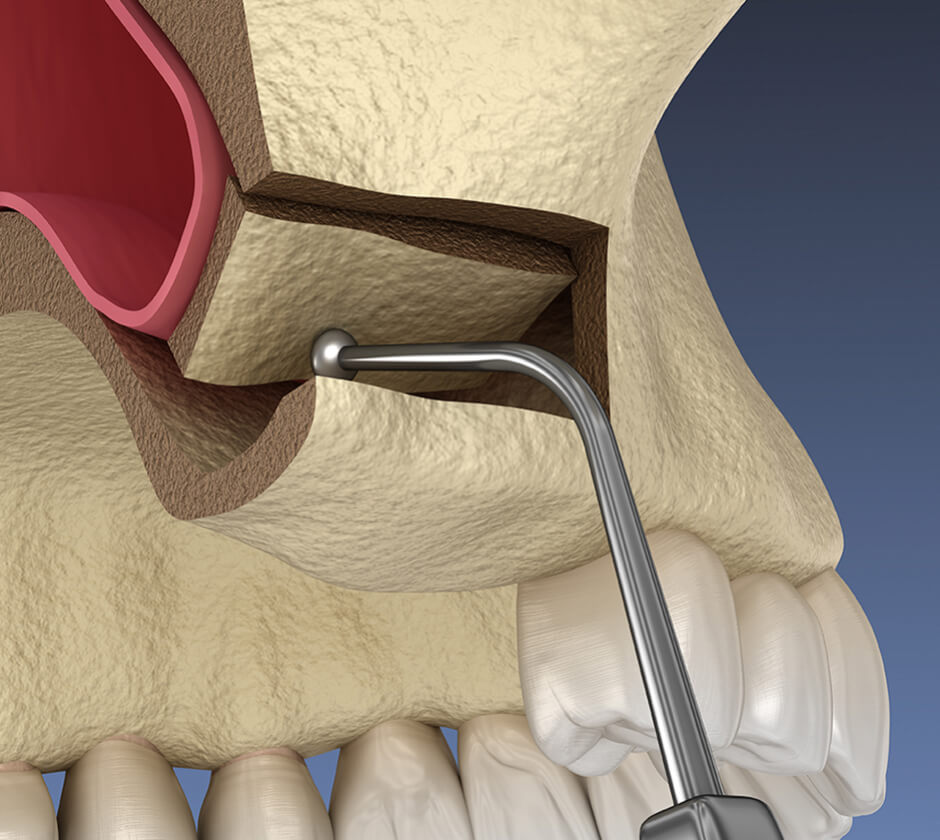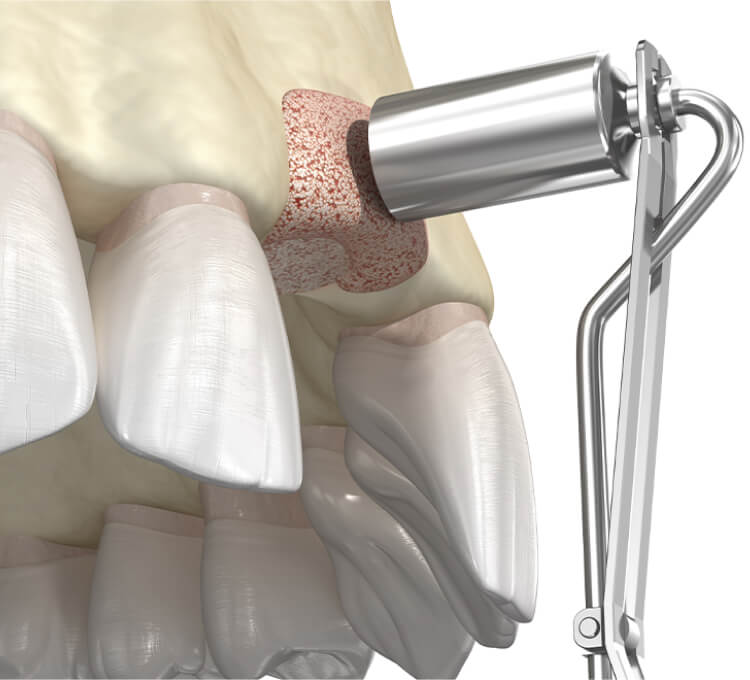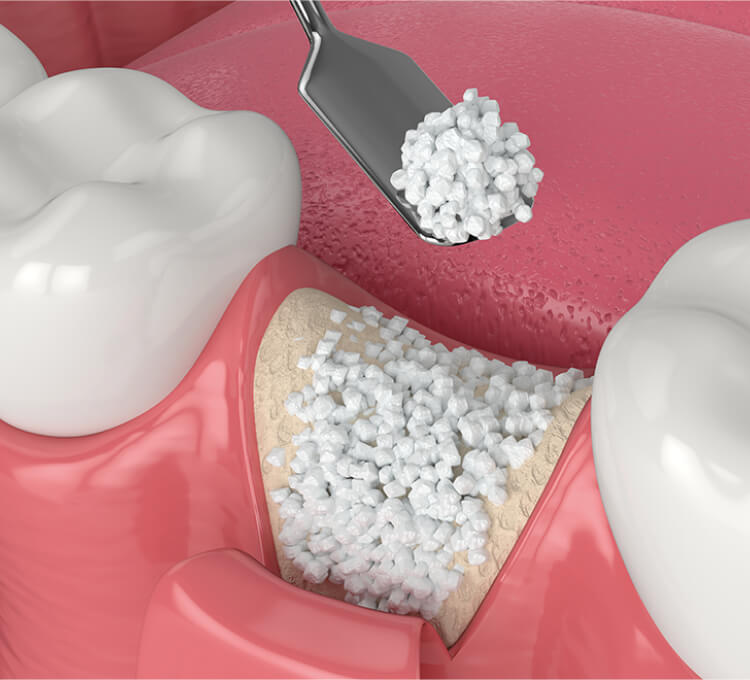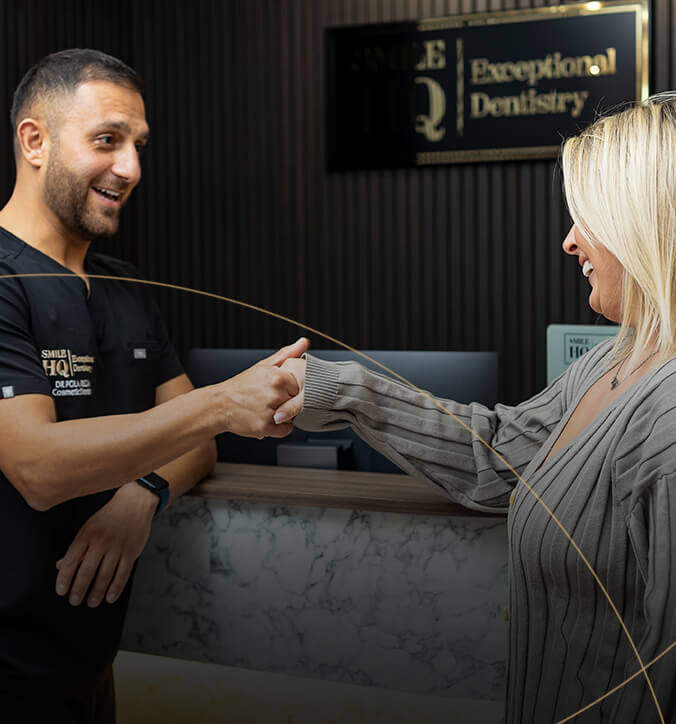
Bone and Sinus Grafts

Your Smile’s New Foundation
You need a strong and healthy jaw to give your dental implants maximum support. The pressure from biting and chewing can take its course, so the foundations of your smile must be strong. Unfortunately, when teeth are lost, resorption occurs, weakening the jaw and leading to bone deterioration.
When teeth are absent, the body removes minerals from the bone that once supported them, resulting in a thin and depleted jaw.
If you need dental implants but lack sufficient jaw support, a graft or sinus lift can stimulate regrowth and renew the bone’s strength.
BOOK CONSULTATIONUnderstanding Bone Grafting
Often referred to as “bone augmentation,” bone grafts rebuild diminished bone using small pieces of natural or synthetic bone placed onto the depleted area.
Over a few months, the additional bone fuses with your jaw, creating a sturdy foundation capable of supporting an implant.


Comparing Bone
Graft Types
There are several different bone graft procedures. An autograft uses pieces of bone harvested from elsewhere in your body. It fuses quickly because it’s a direct match to your existing bone.
Where it’s not possible to use an autograft, we can use a biocompatible synthetic material. This type of graft delivers excellent results but can take longer to bind to your jaw firmly.
Sinus lifts are specific grafts used on the upper jaw. The graft is placed near the back teeth between the upper jaw and sinus membrane, allowing us to place implants in your upper jaw.



Your Bone Graft
Before proceeding with your bone graft, we’ll take scans of your jaw to assess bone density.
When performing the graft, we’ll give an anaesthetic first so you feel comfortable throughout.
For an autograft procedure, we’ll carefully harvest a small amount of bone near the treatment area. Next, we’ll skillfully place it in position and seal the site.
This will take a few months to heal. We’ll check on your recovery process before booking you in for your smile-enhancing dental implant surgery.
Watch our video testimonials

“It was one of the best experiences I have had at a dentist”
Yvonne, Smile HQ Dental Implant patient, talks us through the dental implant journey with Dr Vishal Patel.
Yvonne’s Story
“Reinhald Smiles Again!”
Dr Vish performed a sinus lift and multiple implants for Reinhald, who says she didnt feel a thing.
Reinhald’s StoryRead Our
Rave Reviews
This is a wonderful practice. I was seen at short notice because I was in pain and could not get an appointment with my regular dentist and it was well worth the one hour journey to get there. Dr Sasha, Nurse Stephie and Holly and Claire on reception could not have been more welcoming and kind. I had x Ray and antibiotics and everything was unhurried and explained in detail. Thank you all so much.
Couldn’t be happier with the care and treatment I’ve received at Smile HQ. All the staff are extremely welcoming and helpful, excellent customer service! I couldn’t be happier with my new smile thanks to Dr Pola and his team! Felt so comfortable and at ease with pola. He was very professional and did an amazing job!
Unbelievable experience at Smile HQ. Pola & Claire were incredible, they were patient and listened to all of my needs and wants. I had my composite bonding done today and they are perfect. Highly recommend!
Fantastic customer experience from start to finish. It’s a truly state of the art facility, stylish and modern. You feel very relaxed the moment you walk in. I saw Dr Sasha and his Nurse Charlotte who were both excellent and very professional. Certainly a dental practice where I feel in safe hands and will continue to visit for years to come.
With the sorry state of my teeth, being embarrassed and somewhat scared, the staff at Smile HQ have gone above and beyond themselves in making me always feel at ease. Talking me through all the different stages that they are doing. I really couldn’t ask for better people. I would HIGHLY recommend it to anybody. You will not go wrong choosing Smile HQ.
What an amazing experience I had from start to finish. The facilities were first of all immaculate and the staff were so professional and friendly. I am over the moon with my final result (8 composite veneers) and I couldn’t be happier with the work completed by Dr Pola Reza. A big thank you to the dental assistant Claire, and the Front of House staff Hannah & Holly for making my experience so amazing. Couldn’t recommend them more!
Fantastic clinic. Very friendly, helpful and caring staff and clinicians. The practice has been beautifully designed and doesn’t make you feel like you’re sitting in a dental practice which is a massive bonus. Would highly recommend this clinic to anyone looking for high standard and quality dental care.
Receptionist Kiera is an absolute delight to talk to. So refreshing from your ordinary rude front of house receptionists, lovely attitude and very helpful.
Bone Grafts and Sinus Lifts at SmileHQ
If you’ve previously been refused dental implant treatment, let’s change the narrative. Bone grafts will prepare your jaw for a brighter smile and better oral health. Contact us today to schedule a consultation.
BOOK CONSULTATION
